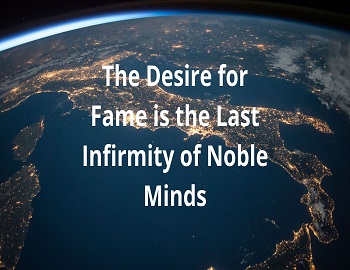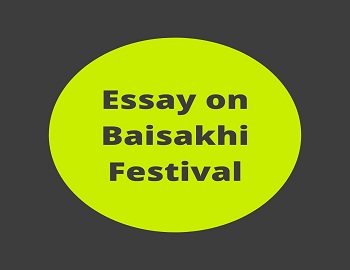Netaji Subhash Chandra Bose:
Subhash, India’s foremost adventurer and revolutionary, is the idol of the nation. How he ran away from his home in Calcutta eluding the police, how he travelled to Afghanistan disguised as a Pathan, Zia-ud-Din, how he reached Germany and then Japan, and how he organized his 60,000 strong I.N.A. to fight India’s War of Freedom outside India, are a stirring saga of bravery, which shows that the days of chivalry are not yet over. His stirring call to his soldiers was ‘Delhi Chalo’. His dream was to plant the Indian Tri-colour over the historic Red Fort. The national flag was hoisted on Red Fort on 15th August 1947, but alas! Subash has already died. His battle-cry of Jai Hind is the official greeting now. Subash lives in the heart of every Indian. Subash is dead; long live Subash!
I admire Gandhiji. He has brought freedom to the masses of India. I admire him for his self-devotion to a noble cause. He has re-made India. He has awakened in us political consciousness. I respect Nehru. He is a great man. His knowledge of world affairs, his fiery speeches and boundless goodwill have made him an international hero. He is admired at home and respected abroad. Nehru is an intellectual giant. I honour Stalin among foreigners. He was the world’s man of destiny, the great leader of a great state. But being an Indian, I would naturally select for my hero Shri Subhash Chandra Bose. There may have been men greater than he. There may have been persons more glamorous or able than he, but I believe there has been none greater than he in noble self-sacrifice and courageous self-devotion to the cause of the country. Shri Subhash Chandra has become now almost a legend. A born leader of men, revolutionary of the type of Simon Bolivar, Lenin, Washington and Garibaldi, he possessed all the sterling qualities of head and heart. He combined with patriot’s enthusiasm and inspiration, the adventurer’s love of daring, decision and ability. In the long line of patriots who have toiled for the country’s cause and have sacrificed their all for the liberation of the country, Shri Subhash Chandra Bose occupies a prominent place.
The history of Subhash is the history of a typical revolutionary, full of unexpected turns of fortune, daring schemes and unflinching determination. When we recall how from the days of his student life he imbibed a great love for the country and burned with the zeal of throwing himself into the political struggle or how he gave up a brilliant career in the Civil Service for a moral cause, we feel completely overwhelmed by the forcefulness of a personality which saw its goal clearly and marched towards it unwaveringly.
Subhash possessed in an unusual degree the virtues of self-discipline and spiritual inspiration. Destiny had cut him out for great things. In a comparatively young age, when men seek prizes of life, such as ease, comfort, money, and family, he cheerfully declined all as if to fulfil a mission for which he was destined. It is significant to note that he resigned from a lucrative government job, remained a strict bachelor, became an ardent disciple of Vivekananda and raised the voice of protest for the first time among Congressmen against the earlier Gandhian creed of co-operation with the British. It is a fact, by no means ordinary, that though one of the greatest admirers of Gandhiji he revolted against him on some fundamental principles- a daring piece of independent thinking which few could have done. To subash, no person was greater than the country; and according to his own lights, he never hesitated in asserting fearlessly what he considered to be right and good for the country. His unyielding hostility to the British had something of Churchillian tenacity. His prosecution of the patriotic duty and sleepless energy of a devoted worker had something wonderful about it. He refused to be cowed down by any person, howsoever great, and by any force, however invincible. Therein lies the explanation of Netaji’s stormy career.
Subhash was born in an upper-middle-class family. His father was a successful lawyer who rose to become the Government pleader and public prosecutor of Cuttack. Subhash was one of a large family of brothers. His academic career was uniformly brilliant. While he was a student of the Presidency College, Calcutta, he had a strange and daring quarrel with the European principal of the college, whom it is said, he assaulted for his anti-Indian attitude. After his university career, we see him in the Indian Civil Service, resigning from it within a year and joining the Indian national struggle. Subhash quickly became an ardent lieutenant of Deshbandhu C.R.Das and on the death of Deshpriya J.M. Sen-Gupta, he assumed the Congress leadership of Bengal.
With the speed of a meteor he climbed from distinction to distinction till in 1938, he became the President of the Indian National Congress for the second time. As the President of the Congress, his differences with Mahatma Gandhi and his group gradually appeared on the surface. While Subhash was an uncompromising fighter for complete independence of India, Mahatmaji was ready to compromise. This led gradually to widen the rift between him and Gandhiji. At Tripuri, the issue came to a crisis. It was there that Subhash went out of the orthodox Congress and formed his own party. He had no personal grievance against the Mahatma but he stood apart from him on matters of principle. Thus while Subhash stood for continuing the nationalist campaign intensively and extensively. Gandhiji emphasised the creed of non-violence and Harijan movement and thereby side-tracked the nationalist cause.
Subhash’s differences with the Gandhian politics were responsible for ushering (introducing) him into the fourth act of his life-drama. He resigned from the Congress and founded the Congress Left-Wing, popularly called the Forward Bloc. Whatever might have been his differences with the Congress, he never slackened in the duty towards India. One or two years after his resignation from the Congress, when he was being prosecuted by the Government on different charges he never ceased to work in whatever capacity he could. He affected Hindu-Muslim unity by his magic wand. He removed the Holwell Monument and thereby earned the admiration and respect of the Muslims. He founded Mahajati Sadan as the house of the Indian National Assembly. Today this building is known as the Subhash Institute of Culture. During the early days of the war, while he was still an under-trial prisoner, he escaped incognito to Afghanistan and from there to Russia and finally to Germany and Japan. It was here that the fifth act of Subhash drama began.
World War II, about this time, had reached a critical stage. The Axis Powers were victorious everywhere. In Europe, Germany had conquered France and was poised for an invasion of Britian. In the East, Japan had conquered Malaya and China. Subhash was readily accepted by the Axis countries to form an Indian National Army, and with the help of that army to conduct an invasion of India by way of Burma. The exploits of the Indian National Army with Netaji as leader and Commander-in-Chief are already an epic. It was India’s first national army that planted its tri-colour flag on the liberated soil of Manipur and Kohima. With the fall of Japan, Subhash was reported dead on August 19, 1945.
“Subhash”, rightly says a historian, “was the stormy petrel on the political horizon of India”. He achieved phenomenal success as a bold leader of men and a courageous politician. Also called “The Great Rebel”, his uncompromising individuality and superhuman ability for the quick organisation have earned undying fame. The heroic deeds of the I.N.A. are now known to all. Gandhiji and Sardar Patel spoke highly of him and his deeds.
Subhash was carved by nature in the mould of greatness. He was great as an individual, brilliant as a student, dynamic as a personality and stormy as a rebel. He fought the forces of evil with the straightforwardness of a missionary. He has his parallel in De Valera of Ireland, the Mufti of Jerusalem, the Faqir of Ipi, Tojo of Japan and Hitler of Germany.
While a love of country and service of motherland governed his faculties of head and heart, the one single trait that distinguished Subhash from all others was his uncompromising hostility to the British. His rallying cry was, “Give me blood, and I will give you freedom”. There cannot be any doubt that his gifts were heaven-born and that he was cut out by destiny as the pre-appointed agent for great things. It is not difficult to point out men greater than he, but it is not easy to find anyone equalling him in the absolute purity of character, consistency of principle and grim determination. I, therefore, place Subhash on the pedestal of a hero and bow down my head in reverence and awe. Netaji lives in the hearts of the people. He is already with the immortals.
- Raja Ram Mohan Roy & Brahmo Samaj
- Swami Dayanand Saraswati & Arya Samaj
- Swami Vivekananda & Ramakrishna Mission
- Theosophical Society & Annie Besant
- Sir Sayyid Ahmad Khan & the Aligarh Movement
- Other Movements
- Revolt Of 1857
- Early Indian Nationalism
- The Morley-Minto Reform or the Indian Council Act 1909
- The Home Rule League, 1916
- Wardha Scheme of Basic Education, 1937
- Social Changes in Modern India– NIOS









Comments (No)